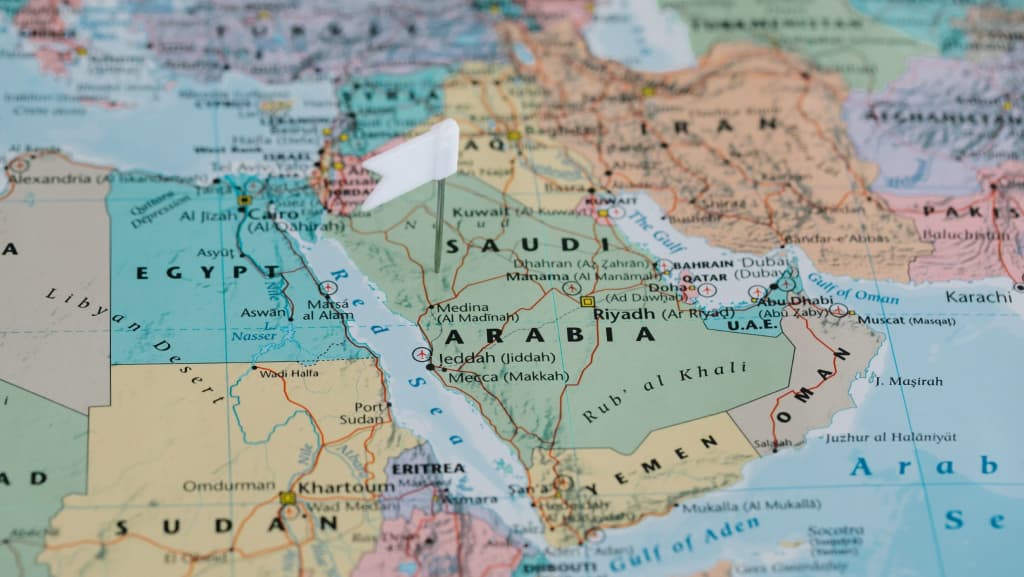
History of Law in the Middle East, with a Focus on the Gulf Countries
A Tapestry of Law: How Mesopotamian traditions, Islamic jurisprudence and modern influences have woven the legal history of the Middle East and the Gulf.
The legal history of the Middle East is a rich and complex tapestry woven from diverse threads, including ancient Mesopotamian traditions, Roman and Byzantine law, Islamic jurisprudence and modern secular and international influences. This content provides a broad overview of the key periods and developments, with a specific focus on the unique legal evolution of the Gulf countries.
Ancient Foundations: The Dawn of Codification
The Middle East is the cradle of some of the earliest known legal systems. Around 1754 BCE, King Hammurabi of Babylon, in modern-day Iraq, created one of the most famous and comprehensive ancient legal codes. The Code of Hammurabi was inscribed on a stone stele and included 282 laws governing a wide range of issues. Other ancient legal traditions, such as the Mosaic Law, also provided detailed legal and moral codes that influenced later religious and legal thought.
The Influence of Greco-Roman Law
Following the conquests of Alexander the Great and the establishment of the Roman Empire, Greco-Roman legal principles began to permeate the region. Roman law, with its emphasis on codified statutes and a structured court system, had a lasting impact, particularly in areas like Egypt, Syria, and Palestine. The Byzantine Empire continued to apply and develop Roman law, which served as a foundation for some later legal systems.
The Rise of Islamic Law: Shari'a
The 7th century CE marked a pivotal moment with the advent of Islam. Islamic law, or Shari'a, emerged as a comprehensive legal and ethical framework derived from two primary sources: the Qur'an and the Sunnah. Over time, Islamic scholars developed a complex methodology to interpret these sources, leading to the emergence of different schools of jurisprudence. Shari'a covers a vast array of topics, including personal status (marriage, divorce, inheritance), criminal law and contract law. This system was historically administered by judges (qadis).
The Ottoman Empire: A Synthesis of Legal Systems
The Ottoman Empire, which controlled much of the Middle East, including parts of the Arabian Peninsula, developed a legal system that blended Islamic and secular law. While Shari'a governed personal status and some criminal matters, the Ottomans also created a body of secular law called qanun. The Tanzimat reforms of the 19th century introduced new commercial, penal, and civil codes based on European models, a trend that would later influence the legal systems of the Gulf states.
The Gulf Countries: Tribal Law, British Influence and Modernisation
The legal history of the Gulf countries (Bahrain, Kuwait, Oman, Qatar, Saudi Arabia, and the United Arab Emirates) is distinct due to a unique blend of tribal traditions, British colonial influence and rapid modernisation driven by oil wealth.
Tribal and Customary Law (Urf): Before the modern state and formal legal systems, much of the Gulf's population was organised along tribal lines. Tribal law, or Urf, was an informal system based on custom and tradition, often enforced through tribal leaders. This system governed land rights, conflict resolution, and social conduct. Even today, tribal affiliations and customs continue to hold social and, in some cases, political importance, influencing how laws are applied and disputes are resolved.
The British Protectorate Era: From the 19th century until the 1970s, many of the Gulf states were British protectorates. During this period, the British introduced their own legal and judicial systems, primarily to handle commercial disputes involving foreign merchants. This created a dual system where British courts applied Anglo-Mohammedan law for foreigners, while local courts continued to apply Shari'a and customary law for the local population, especially in personal and family matters.
Independence and Modern Legal Codification: After gaining independence, the Gulf countries embarked on a process of legal modernization. They adopted written constitutions and legal codes that often combined elements of Shari'a, European civil law systems (particularly the French civil code, via Egyptian influence), and British common law. The level of emphasis on each varies by country:
Saudi Arabia: The legal system of Saudi Arabia is unique in that it is based entirely on uncodified Shari'a, derived from the Hanbali school of Islamic jurisprudence. The Qur'an and the Sunnah are the primary sources of law, and there is no written constitution.
Other GCC Countries: The other Gulf Cooperation Council (GCC) countries have developed modern, codified legal systems. While their civil, commercial, and criminal codes are heavily influenced by European legal traditions, the principles of Shari'a are often declared to be a primary or even the principal source of legislation in their constitutions. Shari'a courts retain jurisdiction over personal status matters such as marriage, divorce, and inheritance for Muslims.
Contemporary Legal Systems
Today, the legal systems of the Gulf countries are characterised by this blend of traditions. The rapid economic development and globalisation of the region have led to the creation of special legal frameworks and courts in "free zones" (such as the Dubai International Financial Centre, or DIFC) that apply English common law to attract international investment. This creates a multi-layered system, where Shari'a, modern civil law, and common law principles coexist to serve the diverse needs of their societies and economies.
For any enquiries please fill out this form, or contact info@thelawreporters.com Follow The Law Reporters on WhatsApp Channels